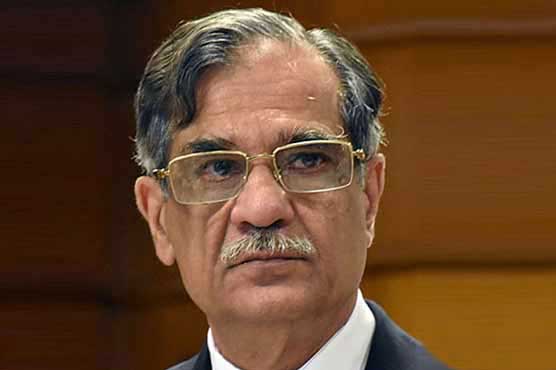Religious groups say that the gender change law encourages homosexual behavior, calling it “un-Islamic.” A measure in the Senate of the Muslim-majority country aims to make the process of sex transformation more difficult for people.
In Pakistan’s Senate, the Jamaat-i-Islami (JI) party recently introduced a bill to alter the 2018 Transgender Persons (Protection of Rights) Act. The Islamic organization requests that a medical board be established to determine whether or not a person may change their gender.
According to the Dawn newspaper, the proposed measure would “prohibit gender reassignment procedures or any other therapy to modify genital traits on the grounds of any psychiatric illness or gender dysphoria.”
Transgender people have the right to register “as per self-perceived gender identity with all government offices,” according to existing legislation.
According to the JI bill, the present legislation might lead to the “legalization of gay weddings” and that “a person could get themselves recognized as a man or a woman not on the basis of their biology, but on the basis of their ‘personal opinions.'”
To evaluate whether a person is permitted to alter their sex, the Islamic party suggests forming boards at the district level that include a doctor, a psychologist, a male general surgeon, a female general surgeon, and a top medical officer.
Anti-Islam?
According to the JI, the law contradicts the Quran and Islamic principles. The South Asian country’s human rights minister, Shireen Mazari, has spoken out against the JI’s bill, claiming that the planned modification is intended at “victimizing” transgender people, despite the fact that current legislation grants them the right to the identification.
“To yet, there has not been a single complaint regarding the abuse of this [existing] law,” she was reported in local media as saying. Sheikh Rashid Ahmad, the Interior Minister, informed the Senate that sex changes were permitted for medical grounds or upon application.
Homosexuality promotion
According to information shared with the upper house of parliament, 16,530 sex changes from male to female have been processed in the last three years, including 12,154 cases of female to male, 21 cases of transgender person to male, nine cases of male to transgender person, and the same number of cases of transgender person to female.
Human rights organizations and activists across the country and worldwide praised the 2018 Transgender Persons (Protection of Rights) Act.
“The central and most important premise of the law is the concept of ‘gender sovereignty,’ namely, that individuals who experience and express their gender socially, psychologically, emotionally, and spiritually have the prerogative to determine their gender, rather than official, state/medical apparatuses only assigning gender at birth,” the International Court of Justice (ICJ) said at the time.
Senator Mushtaq Ahmad Khan, who introduced the measure, told DW that the current legislation “promotes a homosexual and lesbian lifestyle.”
“People who want a sex change through government departments should be sent to a medical board,” he added. “We know of examples where a guy has changed his sex to a woman and subsequently married a male,” he said, adding that such “un-Islamic” behavior would not be accepted in the nation.
People who seek a sex change, according to religious groups, are influenced by Western society and promoted by NGOS.
Medical complications and social taboos
The JI amendment, according to rights groups and medical professionals, will exacerbate challenges for transgender persons and anybody seeking to change their gender identification.
The estimated population of transgender individuals in Pakistan is over 300,000, according to a 2019 Supreme Court census, while the true figure might be higher. Pakistan has a population of around 212 million people.
According to Farzana Bari, an Islamabad-based human rights activist, Pakistan’s retrogressive elements want to amend a “good legislation.”
“It will affect not only transgender persons, but any parents whose children require gender reassignment surgery,” she told DW.
“Lawmakers have no right to determine an individual’s gender identity,” she added, adding that individuals have the freedom to choose their own gender identity.
According to Bari, individuals who want sex-reassignment surgery already have a difficult time getting it because of the stigma surrounding it in a conservative community. If the JI succeeds in changing the legislation, they will have to “go through a lengthy surgical procedure.”
In Pakistan, transgender persons encounter a variety of obstacles, and they are frequently ridiculed and marginalized by society.
While progress has been achieved in ensuring fundamental rights for transgender individuals via constitutional and legislative changes, implementation has been delayed at times.
Only in 2011 was the group authorized to vote in federal elections. They were designated as a distinct group in the national census in 2018.
A farmer from Punjab province’s Kharian town, Abid Hussain, told DW that his two daughters had gender reassignment surgery a year and a half ago. “Because of societal standards, having this surgery is already exceedingly tough,” he stated.
“My family and the doctor were the only ones who knew about my girls’ operation. I even kept my extended family in the dark about it “Added he.
People are reluctant to discuss sex and gender identity, according to Dr. Amjad Chaudhary, who conducted the operation. “Even talking about it with us is tough for them. What would they seem like in front of a medical board? “he stated















